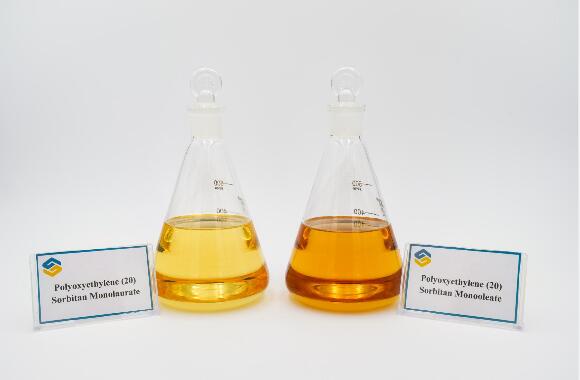Differences between polysorbate 20 and polysorbate 80
(2023年04月11日)https://www.huanachemical.com/differences-between-polysorbate-20-and-polysorbate-80.html
What Is the Difference between polysorbate 20 and 80
Synthetic Raw Materials Difference between Polysorbate 20 80
Polysorbate 20 is a product of the polymerization reaction of sorbitan monolaurate and ethylene oxide, while polysorbate 80 is synthesized by the polymerization of sorbitan monooleate and ethylene oxide.
Application Difference between Polysorbate 20 and 80
Polysorbate 20 uses in cosmetics is known as a non-ionic stain remover because it has relatively more hydrophilic groups (polyoxyethylene), which gives it a strong hydrophilicity property. Polysorbate 20 is usually used as an oil-in-water(O/W) type emulsifier and solubilizer.
Polysorbate 80 is one of the most common polysorbates. The polysorbate 80 emulsifier has significant resistance to electrolyte and strong hydrophilicity, which allow it to be widely used in liquid, semisolid and solid preparations. Polysorbate 80 is used as an oil-in-water(O/W) type emulsifier, solubilizer, wetting agent, dispersant, and stabilizer.
Appearances and Properties Difference between Polysorbate 20 and 80
Polysorbate 20 is a yellow to orange oily liquid, which has a faint odor and a slightly bitter taste. It contains relatively more hydrophilic groups, which allows it to be soluble in water, methanol, ethyl acetate, and toluene(methylbenzene) and insoluble in mineral oil and vegetable oil.
Polysorbate 80 is a light yellow to orange-yellow viscous liquid, which tastes slightly bitter and astringent. It's soluble in warm water, methanol, ethyl acetate, and very slightly dissolvable in mineral oil.
If you want to know more details of polysorbate 80 vs 60 and what is polysorbate 20 made from, please visit our website.
Since 1993, Runhua has endeavored to build a quality-driven brand that dominates the emulsifiers (span sorbitan esters and polysorbates) market segment. Our products and services are highly sought after in over 70 countries and regions, and we are growing to become the preferred partner for worldwide companies across an array of industries, including but not limited to food, cosmetics, pharmaceutical, chemical, textile, agrichemical, feed veterinary medicines, environmental protection, etc.
- このできごとのURL:



コメント